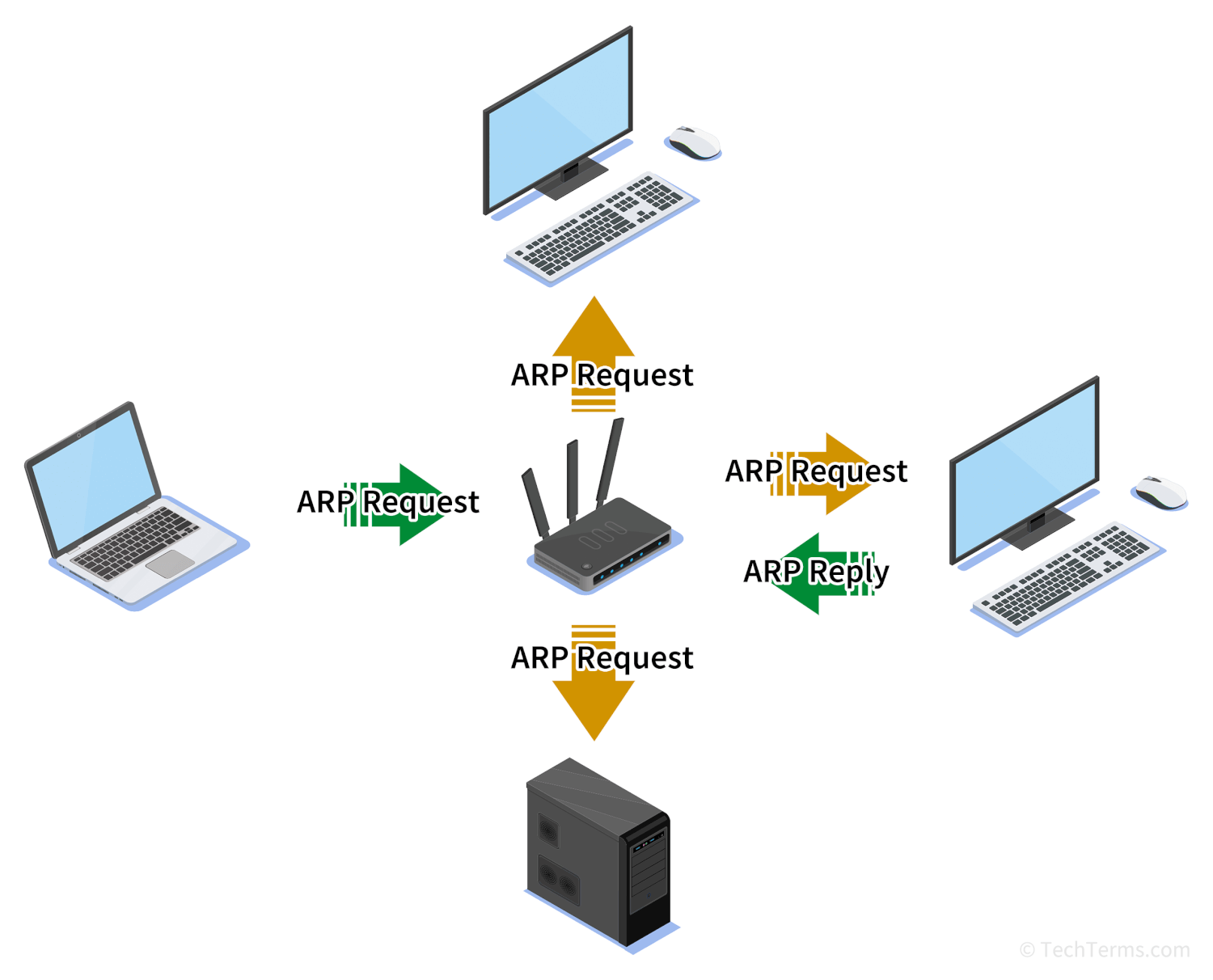ARP
Stands for "Address Resolution Protocol."
Every device on a network has an IP address assigned to it that identifies it as a source and destination for data packets. It also has a MAC address that identifies its physical connection to the network over which it can send and receive data. ARP is a protocol that maps a device's IP address to its MAC address so that other devices know to send it the right data packets.
When a device wants to send a data packet over a network, it needs to know which network connection leads to the destination IP address. First, it broadcasts an ARP request packet to every other device on the network asking which device is assigned that address. This packet is ignored by every device except the one with that IP address, which responds with its MAC address. The sending device then knows which physical network interface it should direct the data packet to.
After associating an IP address with a MAC address, the sending device saves that information to its ARP cache. The next time it transmits a data packet, it can consult that cache first to see if it already knows which MAC address is associated with that IP address. Since network conditions often change, with devices leaving the network and joining again later with a new IP address, an ARP cache keeps entries for a limited time — typically 10 to 20 minutes.

 Test Your Knowledge
Test Your Knowledge